The easiest way to integrate Google Analytics data into Netsuite
Attributer is the easiest way to integrate Google Analytics data, such as Channel & Landing Pages, into Netsuite so you can track where your leads & customers are coming from
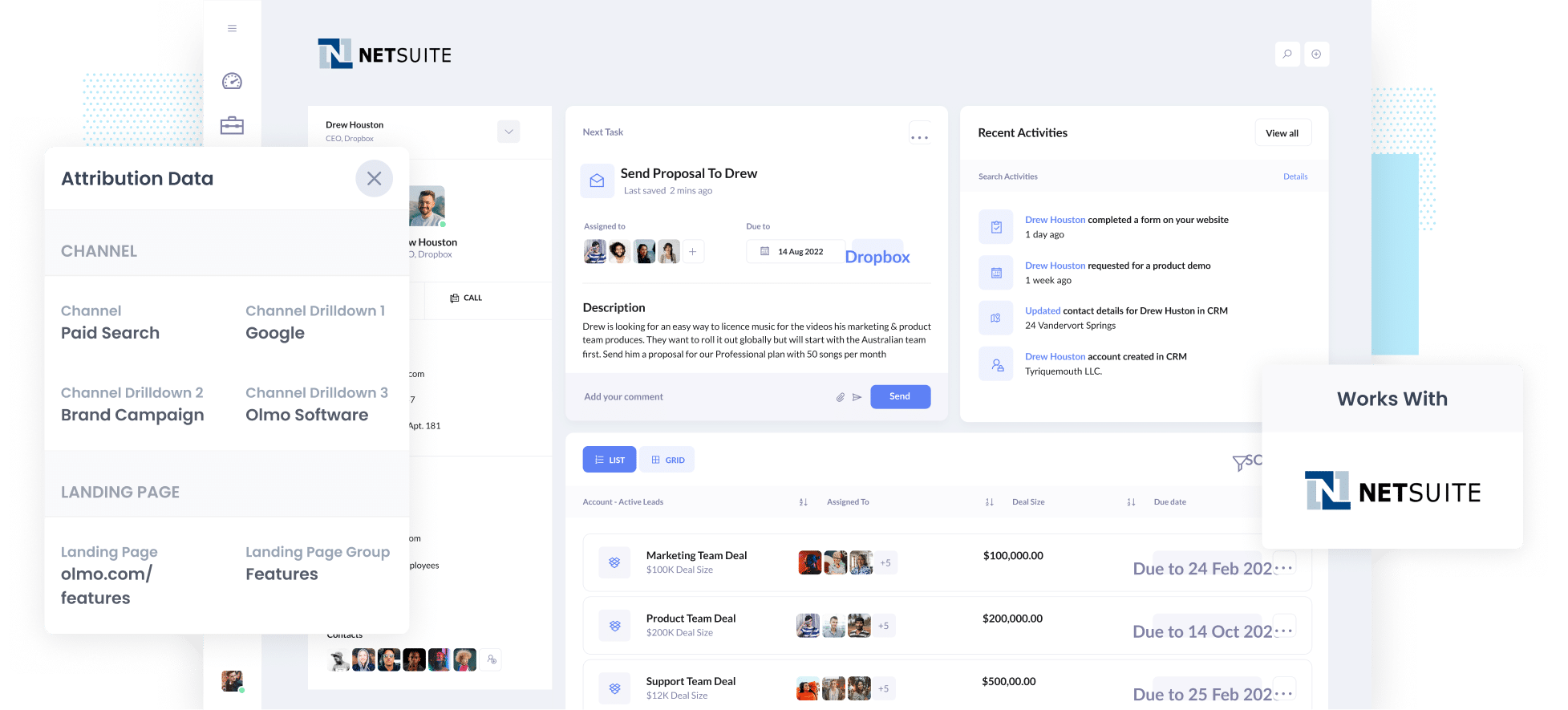
Are you integrating Google Analytics data into your CRM? If not, how do you know which marketing campaigns & channels are actually generating leads, customers & revenue?
Google Analytics is a great tool for telling you where your website visitors are coming from, but it can't tell you which of those visitors are actually going on to become paying customers.
There is a solution though.
By integrating Google Analytics data - such as Channel & Landing Page- into Netsuite, you can run reports that show you exactly what channels and campaigns are driving leads, customers & revenue.
In this article, we'll teach you how you can use Attributer to integrate Google Analytics data into Netsuite
What is Attributer?
Attributer is a small bit of code that you place on your website.
When a visitor comes to you site, it looks at some technical things to determine where the visitor came from (the same things analytics software like Google Analytics looks at).
It then categorizes the visitor into a series of channels (like Paid Search, Paid Social, Organic Search, etc. The same ones you see in Google Analytics) and stores the information in a cookie in the visitor's browser.
Then, when that visitor submits a lead form, it writes the Google Analytics data into hidden fields you add to your form and the data is captured and sent to Netsuite alongside the lead's name, email, phone, etc.
It was originally created by a marketing consultant who need a way to track whether the campaigns he was running were actually generating customers & revenue for his clients.
"I originally built it just for my clients to make it easier for me to work with them, but then realized it might be something that other marketers could use" said Aaron Beashel, founder of Attributer.
Fast forward a few years, Attributer is installed on thousands of websites and passes through Google Analytics data on over 7 million leads per month.
4 steps for integrating Google Analytics data into Netsuite
Using Attributer to capture UTM parameters in Netsuite is simple. Here's how to do it in 4 easy steps:
1. Add hidden fields to your forms

To get started, you need to add some Hidden Fields to your lead capture forms. These hidden fields are:
- Channel
- Channel Drilldown 1
- Channel Drildown 2
- Channel Drilldown 3
- Landing Page
- Landing Page Group
Most form-building tools (like Gravity Forms, WPForms or Jotform) make it easy to add hidden fields to your forms. All you need to do is drag and drop them in!
2. Attributer automatically completes the hidden fields with Google Analytics data
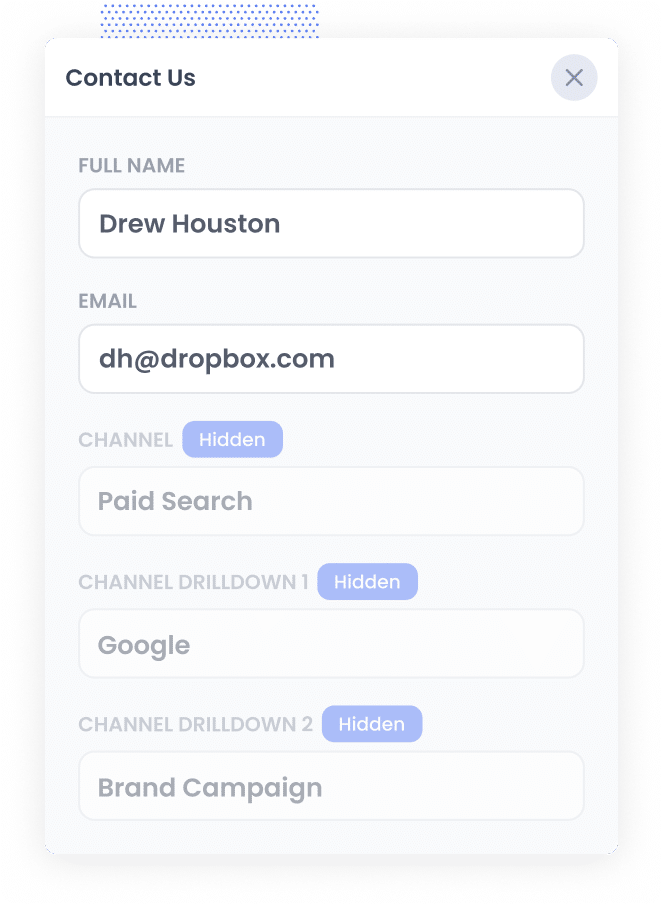
Attributer tracks where your website visitors and writes the Google Analytics-style data into hidden fields on your form when a visitor fills one out.
As an example, if I was a marketer at Dropbox and a visitor came to my website from my Brand campaigns in Paid Search, it would populate the hidden fields as follows (depending on the UTM parameters I used behind my ads):
- Channel = Paid Search
- Channel Drilldown 1 = Google
- Channel Drildown 2 = Brand Campaign
- Channel Drilldown 3 = Dropdox
On top of the information on Channel, it would also capture the visitor's first landing page (I.e. dropbox.com/features/cloud-storage) and the first landing page group (I.e. Features)
3. Google Analytics data is passed into Netsuite
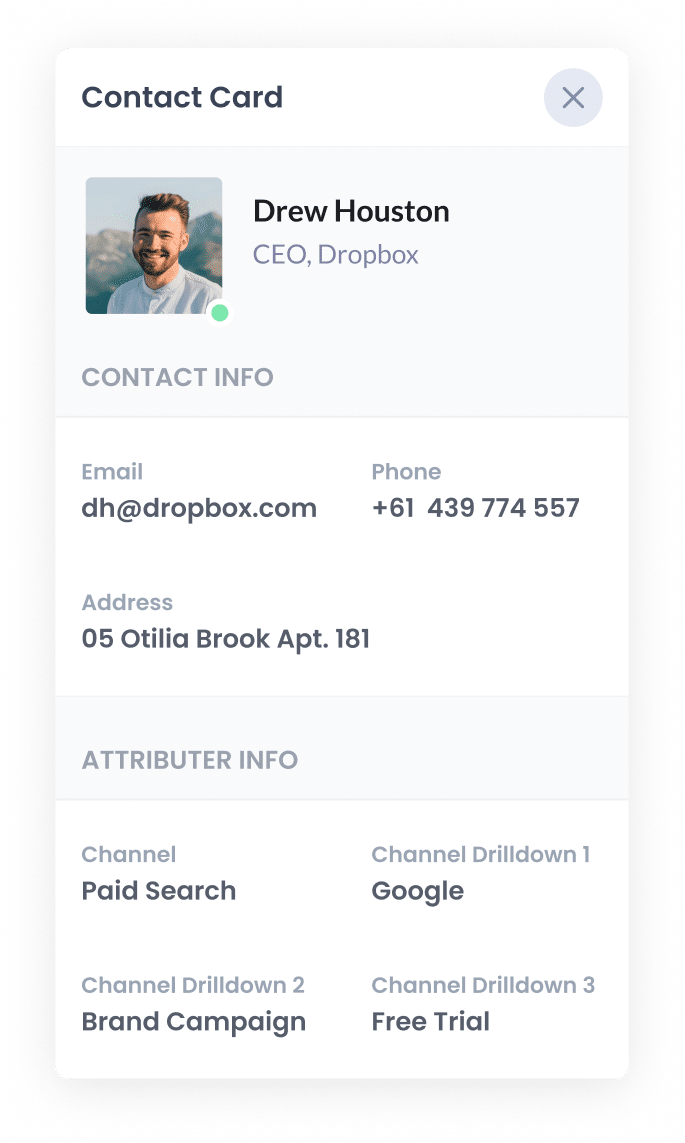
When a visitor submits the form on your website, all of the Google Analytics that Attributer has written into the hidden fields is captured by your form tool alongside the lead's name, email, phone, etc.
This information can then be sent into Netsuite.
4. Run reports to know what channels are driving leads, customers & revenue
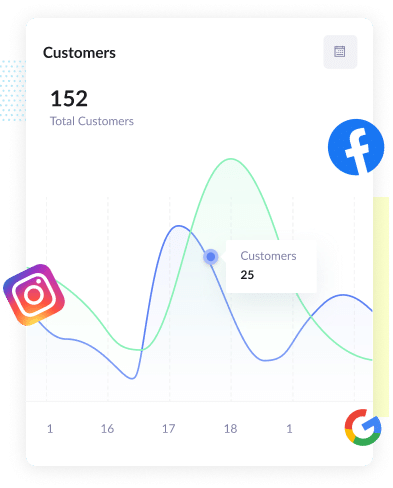
Once the Google Analytics data is in Netsuite, you can then use ti to run reports. You can either use Netsuite's built-in reporting tools or connect a 3rd party BI tool like Tableau to run more advanced reports.
By running these reports, you should be able to figure out what channels are bringing the most leads, what the conversion rate to Opportunity for each channel is, how many Closed Won deals have come from each channel, and much more!
What data gets passed into Netsuite
There are two key elements to understanding how you're getting leads & customers:
- Channel - How did they get to your website? Usually one of Organic Search, Paid Search, Paid Social, Referral, etc.
- Landing Page - What content on your site attracted them there? It could be your Features pages, your blog, your eBooks, etc.
We built Attributer to provide data that answers both these questions:
1. Marketing Channel Data
Attributer automatically captures what channel your leads come from (I.e. Paid Search, Paid Social, Organic Search) as well as further detail on each channel (I.e. For Paid Search, it also captures the Campaign, Ad Group, Keyword, etc)
2. Landing Page Data
Attributer automatically captures the first page the lead sees on your site (I.e. dropbox.com/blog/best-file-storage-tools) as well as the category of the page (I.e. Blog).
This allows you to run reports that show how many leads & customers from a particular content piece (I.e. a specific blog post) as how many leads & customers you got from your blog as a whole.
4 example reports you can run when you integrate Google Analytics data into Netsuite
Once you've integrated Google Analytics data into Netsuite, you can start to run reports to understand how your various marketing campaigns & channels are performing.
To help you understand what's possible, we've include below some examples of our favourite reports to run to understand what's driving growth for your business:
1. Leads by Channel
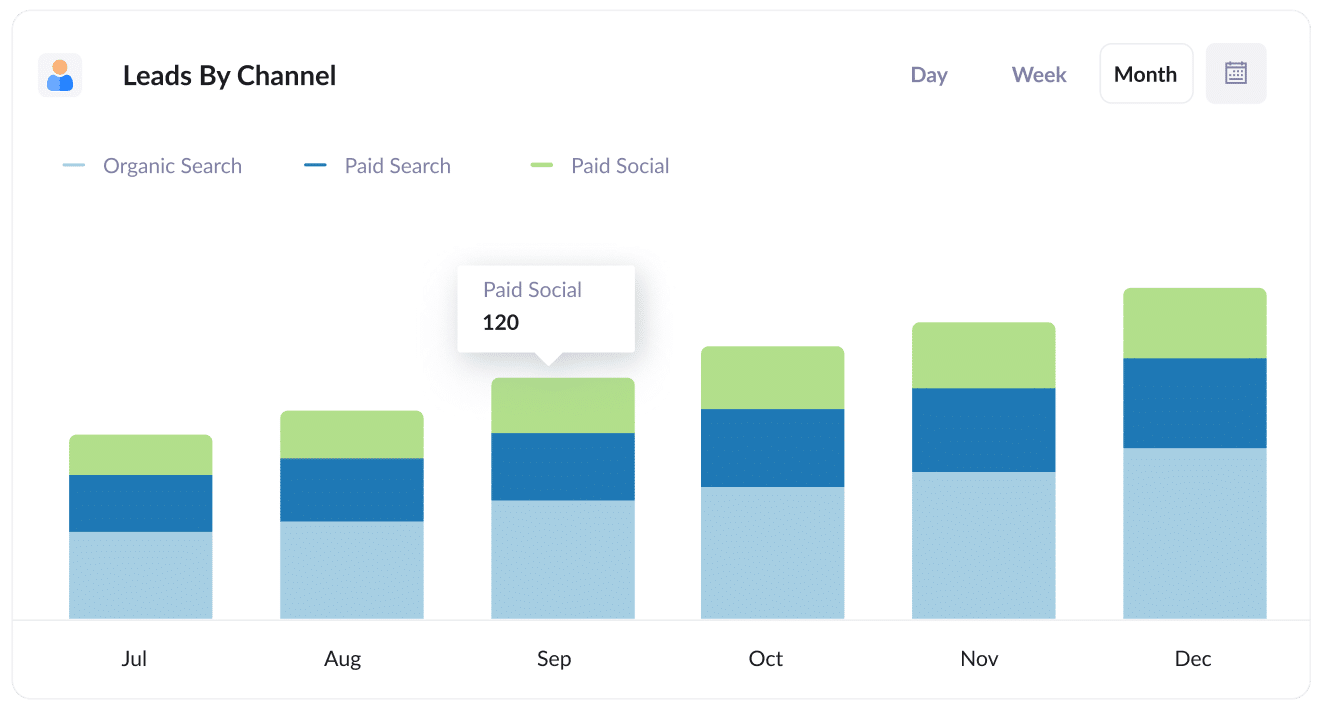
Just like any other business out there, you're probably getting leads from all sorts of channels like Organic Search, Paid Search, and even Organic Social.
The above report breaks down the number of leads you get each month based on the channel they came from. It gives you a bird's-eye view of which channels are generating leads for your business.
Why is this important? It helps you figure out at a high-level where to focus your marketing efforts. Let's say you're getting the majority of your leads from Organic Search, but you're spending most of your budget on Paid Search. It might be time to pause and reconsider that spend if that's the case.
2. Opportunities by Google Ads campaign
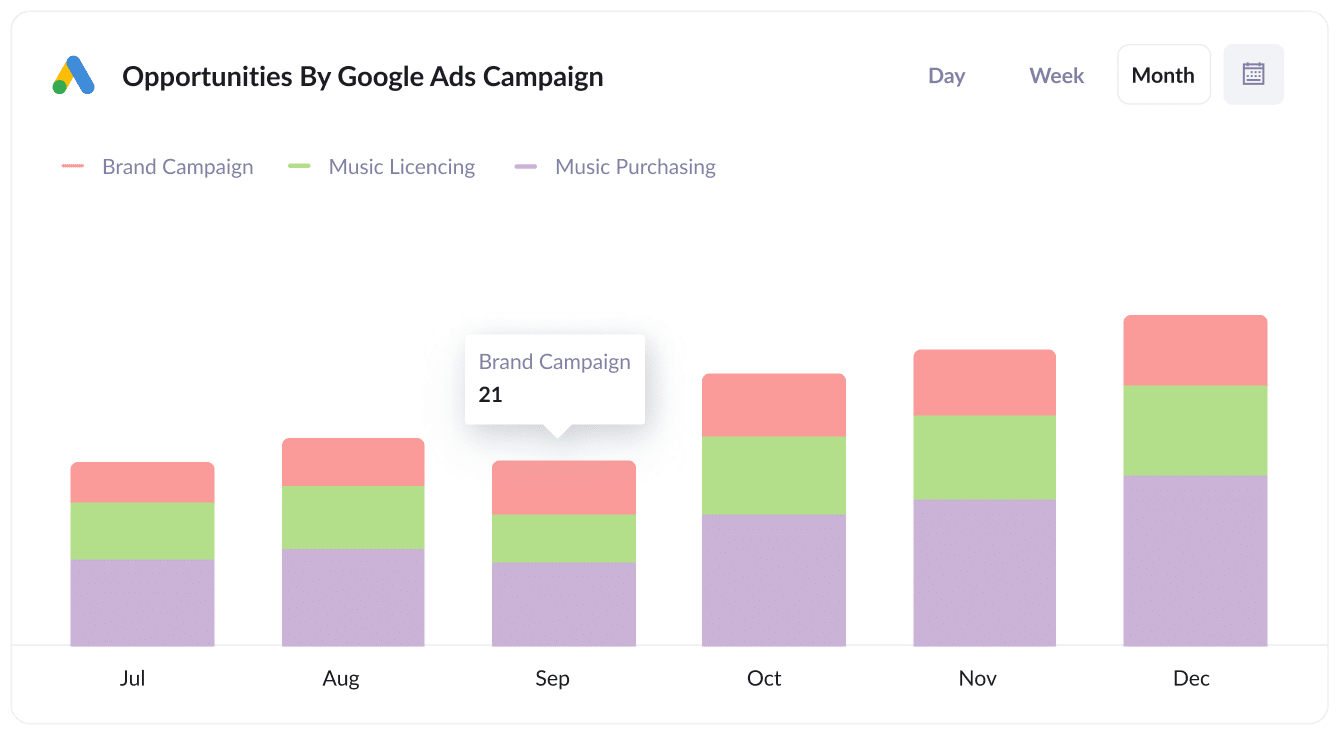
Are you running multiple different Google Ads campaigns?
If so, the above chart can help you understand which one's are actually performing. It shows how many Opportunites are generated each month broken down by the Google Ads campaign they came from.
It can help you understand which campaigns are actually generating Sales Opportunities, and ultimately which ones you should be focusing your budget and optimisation efforts on.
3. Customers by Facebook Ads Network
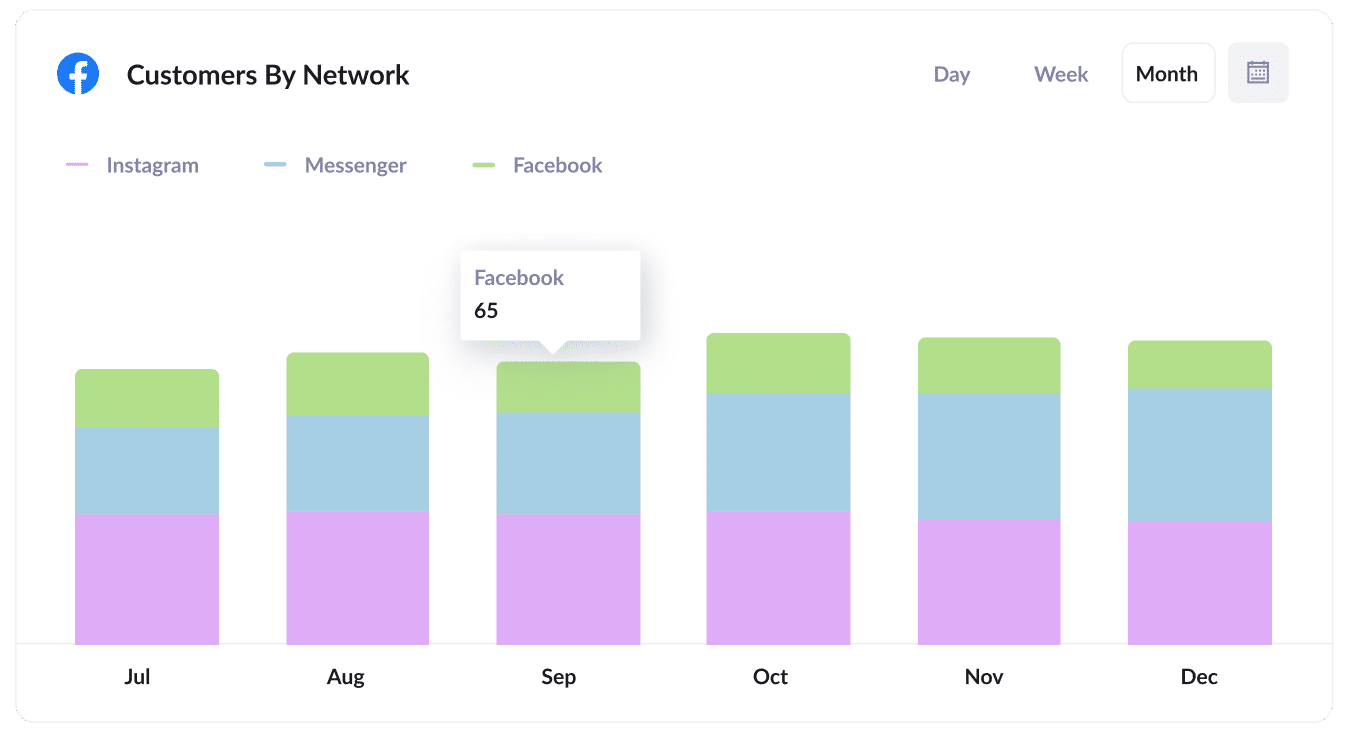
Are you doing Facebook Ads to generate leads?
If so, those ads are likely appearing across the various social media networks Facebook owns (I..e Facebook, Instagram, Messenger, Whatsapp).
In that case, the above graph, which shows how many customers you got from your ads on each network, will likely be useful for you.
It can help you understand which network your ads are performing best on and subsequently, where your should be focusing your efforts.
4. Revenue from Organic Search by search engine
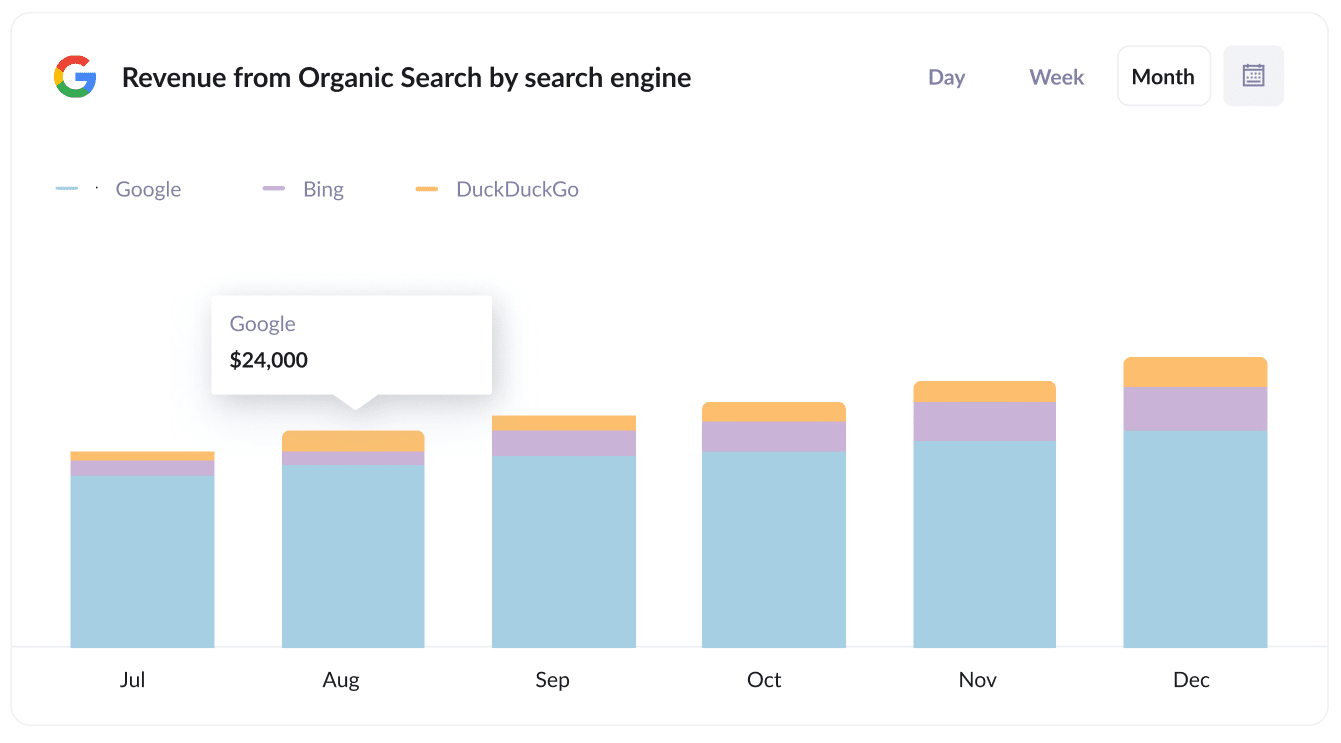
Are you doing SEO to help grow the number of leads you get each month?
If so, the above report can help you understand how much revenue you're actually getting back from those efforts.
It can be useful to look at this report broken down by the search engine the lead came from (which is shown above), and it can also be useful to compare the revenue generated from SEO with revenue from other channels (I.e. Paid Search, Organic Social, etc) to understand how important Organic Search is for the growth of your business.
Wrap up
If you're wanting to get Google Analytics data into Netsuite, then Attributer is a simple, reliable solution backed by a team of analytics professionals who can help support you with the implementation.
Best of all, it's free to get started, so start your free trial today.
Get Started For Free
Start your 14-day free trial of Attributer today!

About the Author
Aaron Beashel is the founder of Attributer and has over 15 years of experience in marketing & analytics. He is a recognized expert in the subject and has written articles for leading websites such as Hubspot, Zapier, Search Engine Journal, Buffer, Unbounce & more. Learn more about Aaron here.
